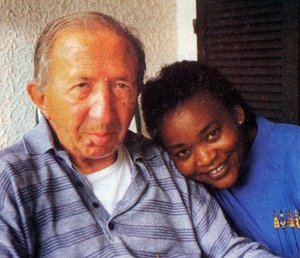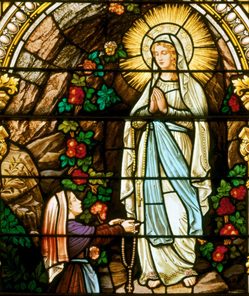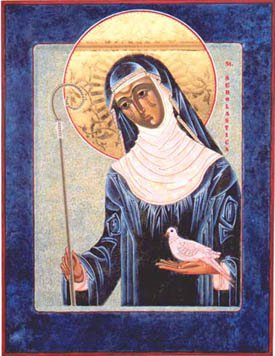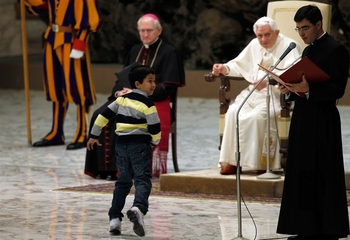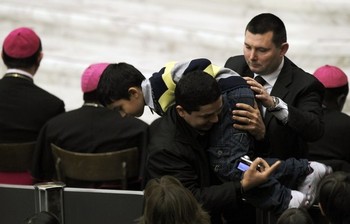February 2011 Archives
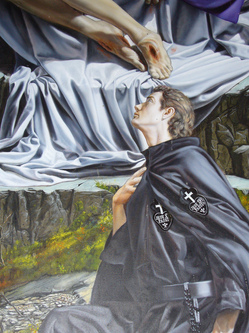 O good St. Gabriel, God inspired you to love the passion of Jesus as it was reflected in the heart of Mary, his mother. By her side, you stood beneath the cross of Jesus, gazing on him as she did, and sharing her compassion. O St. Gabriel, we wish, like you, to grow in love for God and all his people. Remember us in the trials of our life. Remember especially those who are young and in need.
O good St. Gabriel, God inspired you to love the passion of Jesus as it was reflected in the heart of Mary, his mother. By her side, you stood beneath the cross of Jesus, gazing on him as she did, and sharing her compassion. O St. Gabriel, we wish, like you, to grow in love for God and all his people. Remember us in the trials of our life. Remember especially those who are young and in need.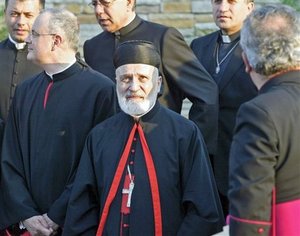 Today, Pope Benedict XVI accepted the petition of His Beatitude, Patriarch Nasrallah Peter Sfeir, cardinal, to retire from his pastoral leadership as the Father of Maronite Church.
Today, Pope Benedict XVI accepted the petition of His Beatitude, Patriarch Nasrallah Peter Sfeir, cardinal, to retire from his pastoral leadership as the Father of Maronite Church.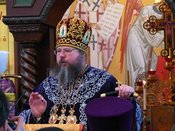 The Orthodox Church in America (OCA), according to reports, has placed Metropolitan Jonah on a leave of absence. The Synod of the OCA acted swiftly to seeming abuse of power. The Metropolitan Jonah, it seems, is facing mounting questions not only over issues of style of management but anger issues.
The Orthodox Church in America (OCA), according to reports, has placed Metropolitan Jonah on a leave of absence. The Synod of the OCA acted swiftly to seeming abuse of power. The Metropolitan Jonah, it seems, is facing mounting questions not only over issues of style of management but anger issues.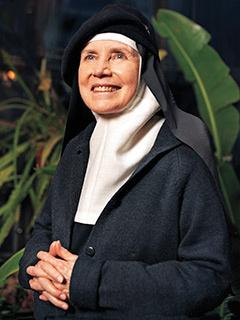 Not surprising that many people are interested in sensational stories like "Mother Dolores Hart: The Nun Who Kissed Elvis Presley." I guess kissing Elvis is akin to winning the jackpot. Each to his or her own! Thom Geier's story is exactly titled such on EW.com. I have to admit, however, I am fascinated --to a degree-- by this woman's gesture of following a vocation that had in mind her eternal destiny and not just money, fame and power. Hart's life and enduring witness to Christ at the Abbey of Regina Laudis, Bethlehem, CT, is inspiring. Who wouldn't be inspired by a beautiful woman giving her life to God through monastic consecration!
Not surprising that many people are interested in sensational stories like "Mother Dolores Hart: The Nun Who Kissed Elvis Presley." I guess kissing Elvis is akin to winning the jackpot. Each to his or her own! Thom Geier's story is exactly titled such on EW.com. I have to admit, however, I am fascinated --to a degree-- by this woman's gesture of following a vocation that had in mind her eternal destiny and not just money, fame and power. Hart's life and enduring witness to Christ at the Abbey of Regina Laudis, Bethlehem, CT, is inspiring. Who wouldn't be inspired by a beautiful woman giving her life to God through monastic consecration!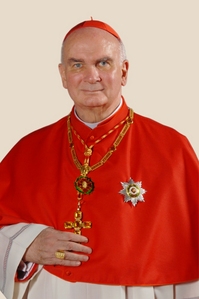 John Patrick Cardinal Foley, 75, Grand Master of the Equestrian Order of the Holy Sepulchre of Jerusalem retired from his work in Rome due to the illnesses of luekemia and anemia. He returned to his native Philadephia. His return to the USA was swift after submitting a letter of resignation to the Cardinal Secretary of State on February 8 and meeting with His Holiness, Pope Benedict on February 10; he was home on the 12th.
John Patrick Cardinal Foley, 75, Grand Master of the Equestrian Order of the Holy Sepulchre of Jerusalem retired from his work in Rome due to the illnesses of luekemia and anemia. He returned to his native Philadephia. His return to the USA was swift after submitting a letter of resignation to the Cardinal Secretary of State on February 8 and meeting with His Holiness, Pope Benedict on February 10; he was home on the 12th.
Foley is the former editor of the Phildelphia Catholic newspaper The Catholic Standard & Times and the former President of the Pontifical Council of Social Communications. The Cardinal held his position at the Holy See for 23 years.
His Eminence freely admits his physical diminishment but is facing his illness with courage and with Christ at the center. His diagnosis was received in September 2009.
Read the CNS story here.
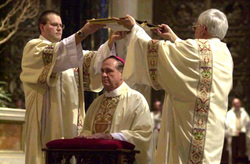 At a priest's ordination as bishop the Book of the
Gospels is held open over the man's head by two deacons, a way to communicate that the
Scriptures are crucial to the life of the bishop and that Christ has infused
His Word in his heart and mind. Archbishop Timothy Broglio said this when he
ordained Bishop Spencer in 2010:
At a priest's ordination as bishop the Book of the
Gospels is held open over the man's head by two deacons, a way to communicate that the
Scriptures are crucial to the life of the bishop and that Christ has infused
His Word in his heart and mind. Archbishop Timothy Broglio said this when he
ordained Bishop Spencer in 2010: 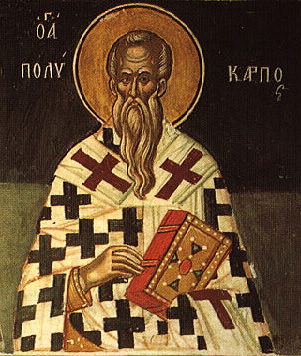
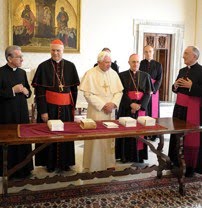
On February 19th,
the Cardinal Secretary of State, His Eminence, Tarcisio Cardinal Bertone SDB
and Archbishop Fernando Filoni, the assistant for General Affairs, presented
the Holy Father the 2011 Annuario Pontificio. The Annuario is the pontifical
yearbook with everything you want to know and more. Highlights in this edition:
In 2010, the Pope erected 10 new episcopal sees, 1 apostolic exarchate and 1 apostolic vicariate. One diocese was elevated to the rank of metropolitan see, two prelatures to the rank of diocese, and two apostolic prefectures and one apostolic administration to the rank of apostolic vicariates.
The world's Catholics increased from nearly 1,166 million in 2008 to 1,181 million in 2009, an increase of fifteen million faithful which corresponds to a growth of 1.3%.
The distribution of Catholics among the continents. Between 2008 and 2009:
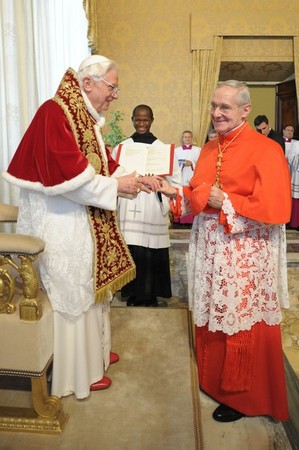 With the Cardinal Agostino Cacciavillan, 84, who requested to be made a cardinal-priest and because of his age, the College of Cardinals gets a new proto-deacon (that is, the first among the deacons of the College).
With the Cardinal Agostino Cacciavillan, 84, who requested to be made a cardinal-priest and because of his age, the College of Cardinals gets a new proto-deacon (that is, the first among the deacons of the College). 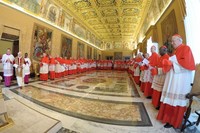 The Pope called an ordinary consistory of cardinals to today to discuss and then announce that 3 new saints are to recognized. The new saints: Don Luigi Guanella, Don Guido Maria Conforti and Sister Bonifacia Rodriquez de Castro.
The Pope called an ordinary consistory of cardinals to today to discuss and then announce that 3 new saints are to recognized. The new saints: Don Luigi Guanella, Don Guido Maria Conforti and Sister Bonifacia Rodriquez de Castro.- Blessed Luigi Guanella founded Congregation of the Servants of Charity and the Institute of the Daughters of Saint Mary of Providence
- Blessed Guido Maria Conforti founded the Xavierian Missionaries
- Blessed Bonifacia Rodriquez de Castro founded the Congregation of the Servants of Saint Joseph
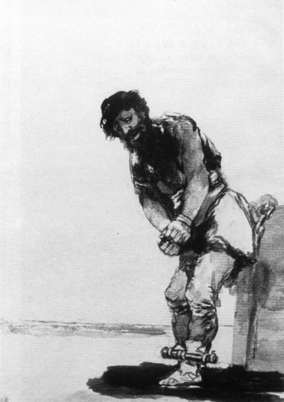 Programs for prisoner reentry into society is crucial in keeping people clean, working, and being a good citizens. "Do-good-ing" is not a Catholic principle. We have plenty of good people doing good all the time. In fact, my heart is really moved by those who don't have a faith tradition to call their own and are motivated to act charitably toward those in need. Living a life of virtue and prayer are Catholic ways of proceeding. Showing mercy is what we are called to live in concrete ways. Helping the excon get on his or her feet again and walking with them is Jesus-inspired act.
Programs for prisoner reentry into society is crucial in keeping people clean, working, and being a good citizens. "Do-good-ing" is not a Catholic principle. We have plenty of good people doing good all the time. In fact, my heart is really moved by those who don't have a faith tradition to call their own and are motivated to act charitably toward those in need. Living a life of virtue and prayer are Catholic ways of proceeding. Showing mercy is what we are called to live in concrete ways. Helping the excon get on his or her feet again and walking with them is Jesus-inspired act.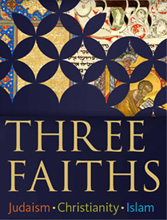
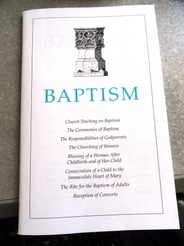 In the Latin Church there are several forms of celebrating the Sacrament of Baptism. Most Catholics today are familiar with the Rite of Baptism done according to the reforms of Pope Paul VI. Other Catholics follow the Traditional form according to the Rituale Romanum. This booklet follows this older form of the ritual.
In the Latin Church there are several forms of celebrating the Sacrament of Baptism. Most Catholics today are familiar with the Rite of Baptism done according to the reforms of Pope Paul VI. Other Catholics follow the Traditional form according to the Rituale Romanum. This booklet follows this older form of the ritual.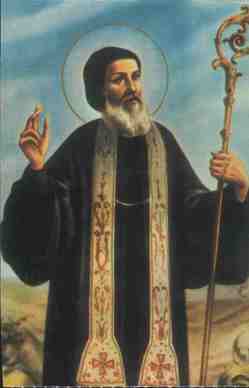 1600 years is a long time. But the Church never forgets. She especially never forgets a sainted monk who called together others to live the Gospel and to pray. Maronite Church who traces her foundation to a monk is remembering his good work and his death of so long ago. Several celebrations around the US mark the anniversary.
1600 years is a long time. But the Church never forgets. She especially never forgets a sainted monk who called together others to live the Gospel and to pray. Maronite Church who traces her foundation to a monk is remembering his good work and his death of so long ago. Several celebrations around the US mark the anniversary.
I try to communicate to others, particularly the friends I teach about the Catholic faith, that to be authentically Catholic one has to fall in love with Jesus, and to do what He does. Mercy and love are constitutive parts of being called a Christian. This not always easy. It is a human struggle for many. But we are called by the Lord Himself to love and pray for your enemies; have mercy on the sinner; forgive injuries; feed the hungry. Not willing to do this, then it would be pretty hard to convince others that your proposed faith in Christ as Lord and Savior is true. The Pope's Angelus address earlier today gives us a clue to my point: to be a Catholic means living in the mindset of having a perpetual second chance. Read the 2 papal paragraphs:
On this seventh Sunday of Ordinary Time the biblical readings speak to us about God's will to make men participants in his life: "Be holy because I the Lord your God am holy," we read in the Book of Leviticus (19:1). With these words and the precepts that follow from them, the Lord invited the Chosen People to be faithful to the covenant with him, walking in his ways, and established the social legislation on the commandment that says that "you will love your neighbor as yourself" (Leviticus 19:18). If we listen, then, to Jesus in whom God took on a mortal body to become every man's neighbor and reveal his infinite love for us, we hear again that same call, that same objective audacity. The Lord, in fact, says: "Be perfect as your Father in heaven is perfect" (Matthew 5:48). But who can become perfect? Our perfection is to live as children of God in humility concretely doing his will. St. Cyprian wrote that "to God's paternity there must correspond a conduct as children of God so that God might be glorified and praised by man's good conduct" (De zelo et livore, 15: CCL 3a, 83).
In what way
can we imitate Jesus? Jesus himself says: "Love your enemies and pray for those
who persecute you so that you will be children of your Father who is in heaven"
(Matthew 5:44-45). He who welcomes the Lord in his life and loves him with all
of his heart can begin again. He is able to do God's will: to realize a new
form of existence animated by love and destined for eternity. Paul the Apostle
adds: "Do you not know that you are God's temple and that God's Spirit lives in
you?" (1 Corinthians 3:16). If we are truly aware of this reality and our life
is deeply formed by it, then our witness becomes clear, eloquent and
efficacious. An [early Christian] author wrote: "When the whole being of man is
mixed, so to speak, with God's love, then his soul's splendor is also reflected
on the outside" (John Climacus, Scala Paradisi, XXX: PG 88, 1157 B), in the
whole of his life. "Love is a great thing," we read in "The Imitation of
Christ," [it is] "a good that makes every heavy thing light and easily endures
every hardship. Love aspires to sail on high, not to be held back by any
earthly thing. It is born of God and only in God can it find rest" (III, V, 3).
 Salt + Light TV has given a wonderful gift in doing a terrific story on the ancient pilgrimage trail called in Spanish, El Camino de Santiago. The Way of Saint James. Alessia Domanico is the host of "Discovering the Way: El Camino de Santiago."
Salt + Light TV has given a wonderful gift in doing a terrific story on the ancient pilgrimage trail called in Spanish, El Camino de Santiago. The Way of Saint James. Alessia Domanico is the host of "Discovering the Way: El Camino de Santiago."- a great adventure, go for a purpose: you'll grow spiritually and physically
- an opportunity to pray, to do penance, to be reminded of tradition
- catechesis on the faith
- an opportunity to learn Christian and civil history
- to know your own humanity, that of the other
- learn and experience the christian faith
- have the goal to go to the Cathedral of Saint James to visit the relics of a great Apostle.
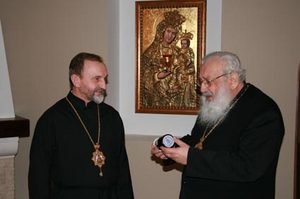 In the past weeks we've seen the Pontiff accepting the resignation of His Beatitude Cardinal Lubomyr Husar, 78, as the Major Archbishop of the Ukrainian Catholic Church. Bishop Ihor Voznyak is the temporary administrator of the Church until a new leader is elected.
In the past weeks we've seen the Pontiff accepting the resignation of His Beatitude Cardinal Lubomyr Husar, 78, as the Major Archbishop of the Ukrainian Catholic Church. Bishop Ihor Voznyak is the temporary administrator of the Church until a new leader is elected.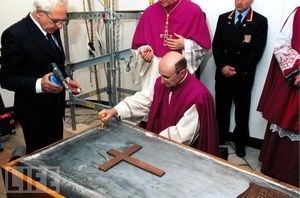 The Holy See is allowing the coffin of Pope John Paul II to be viewed following the May 1st beatification ceremony which will be celebrated by Pope Benedict XVI.
The Holy See is allowing the coffin of Pope John Paul II to be viewed following the May 1st beatification ceremony which will be celebrated by Pope Benedict XVI. - lack of interaction
- no easy way to share content
- lack of good content
- lack of purpose.
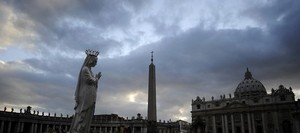
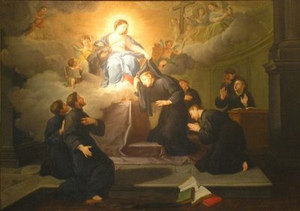 The collect prayed by the priest at Mass for today's
optional memorial of the 7 holy founders of the Servite Order asks the Lord for
same "love which inspired the seven holy brothers to honor the Mother of God
with special devotion and to lead your people to you." Servites, a 13th century mendicant order inspired by the first Dominican martyr, Saint Peter of Verona, are devoted to
the Our Lady of Sorrows and are to live a life of penance. Theirs, like what all Christians live, is a life
discipleship with Christ Crucified. The is the key to our salvation. And the
Servite founders remind us that following Christ necessarily means bearing the
cross.
The collect prayed by the priest at Mass for today's
optional memorial of the 7 holy founders of the Servite Order asks the Lord for
same "love which inspired the seven holy brothers to honor the Mother of God
with special devotion and to lead your people to you." Servites, a 13th century mendicant order inspired by the first Dominican martyr, Saint Peter of Verona, are devoted to
the Our Lady of Sorrows and are to live a life of penance. Theirs, like what all Christians live, is a life
discipleship with Christ Crucified. The is the key to our salvation. And the
Servite founders remind us that following Christ necessarily means bearing the
cross.
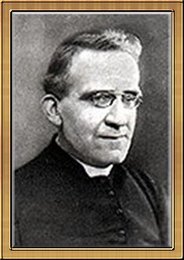
In the current issue of La Civiltà Cattolica, Jesuit Father Antonio Spadaro wrote an interesting essay, "The Thought of Henri Bremond." Matters pertaining to faith and reason, faith and culture interest me perhaps you. At least that's what I hope if you are a frequent reader of the Communio blog. Henri Bremond (1865-1933) is a former a Jesuit priest, literary scholar and was in the middle of the Modernist crisis. His literary output was terrific. Bremond was a member of the illustrious Académie Française succeedingm(elected in 1923 holding seat number 36). France also awarded the Lé d'honneur. The summary:
An attempt to
overcome the gap between faith and culture - In the years that saw the rise of
surrealism, of Freudian thought and of the modernist crisis, Henri Bremond
captured the separation that was growing between theology and culture
sanctioned by the Enlightenment. Bremond suffered in trying to find a
compromise in terms of language, seeking to show to a cultured audience the
best results of a religious sensibility and sought to show to his Catholic
readers the religious value of «profane» literature. Seeing the similarities
between a mystical and a poetic inspiration, he concluded that "it is up to the
mystic to explain the poet," reversing a common axiom. The article, on the
occasion of the reissue of his Prayer and poetry, absent from Italian
bookstores for three decades, presents the main insights of the priest,
academician of France.
One of the great joys I have experienced in my visits to parishes and schools in our Archdiocese over the past three-plus years has been the witness of so many dedicated lay Catholics who serve the Church in many and diverse ways. Much of the work of these lay ministers is visible to us. They share their gifts and talents as music ministers at Mass, making "a joyful noise to the Lord," and as lectors, ushers and Eucharistic ministers who, Sunday after Sunday, show great care for the liturgy. Catechists minister in our parishes, passing on the faith to Catholics of all ages - from converts to "cradle Catholics" - who are hungry for spiritual nourishment. And the youth ministers of our Archdiocese share their enthusiasm for being Catholic and the Gospel message of God's love with young people "on fire" for their faith. |
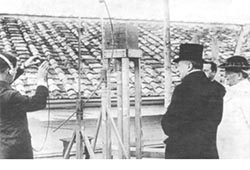 February 12, 1931, Vatican Radio began its social networking capabilities for Pope Pius XI who had a particular interest in evangelization, especially in the foreign lands. Guglielmo Marconi (1874-1937), the physics Nobel Prize laureate became the father of wireless communication. Quoting Marconi, the Vatican Press Director Jesuit Father Frederico Lombardi recalled, "My inventions are to save humanity, not to destroy it."
February 12, 1931, Vatican Radio began its social networking capabilities for Pope Pius XI who had a particular interest in evangelization, especially in the foreign lands. Guglielmo Marconi (1874-1937), the physics Nobel Prize laureate became the father of wireless communication. Quoting Marconi, the Vatican Press Director Jesuit Father Frederico Lombardi recalled, "My inventions are to save humanity, not to destroy it."Fraternity of St. Charles Borromeo is celebrating their 25th anniversary as a congregation of priests. The Fraternity is a new community of priests in the Church, founded by Monsignor Massimo Camisasca in 1985. It was signed into Church law in 1999 by Pope John Paul II as a Society of Apostolic Life. On Saturday, February 13, His Holiness Pope Benedict XVI met with the Fraternity's founder, leadership and seminarians. Here's the text of the Pope's address to members of the Fraternity.
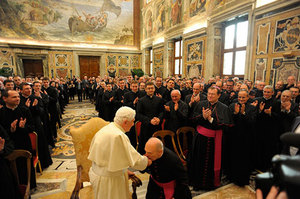
It is with real joy that I meet with you, priests and seminarians of the Fraternity of St. Charles, who have gathered here on the occasion of the 25th anniversary of its birth. I greet and thank the founder and superior general, Monsignor Massimo Camisasca, his council and all of you, relatives and friends who are part of the community's circle. I greet in particular the Archbishop of the Mother of God of Moscow, Monsignor Paolo Pezzi, and Don Julián Carrón, president of the Fraternity of Communion and Liberation, which symbolically expresses the fruits and the roots of the work of the Fraternity of St. Charles. This moment brings back to my mind my long friendship with Monsignor Luigi Giussani and bears witness to his charisma.
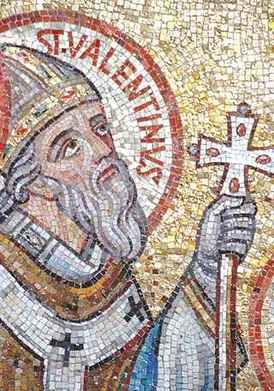
The Church's hagiographical tradition (lives of the saints) the Roman Emperor Claudius prohibited young men from getting married because he wanted them for his army. Valentine, a priest of Rome, contradicted the Emperor's wishes and married couples in secret. This act of deviance, and the fact that he helped martyrs at the time of persecution, landed Valentine in prison with a death sentence. He was beaten and beheaded. Saint Valentine's relics repose in the Church of Saint Praxedes (near to the papal basilica of Santa Maria Maggiore). Corresponding with some married couples Valentine would sign his letters, 'Your Valentine'.
Valentine was martyred in 269 at Rome and buried on the Flaminian Way. He is the patron saint of beekeepers, engaged couples, epilepsy, fainting, greetings, happy marriages, love, lovers, plague, travelers, and young people. Valentine is often portrayed with birds and roses in iconography.
As a cultural note, the Flaminian Way is one of the principal Roman roads leading from
Rome to Gaul. The road's construction was begun in 220 BC by Caius Flaminius.
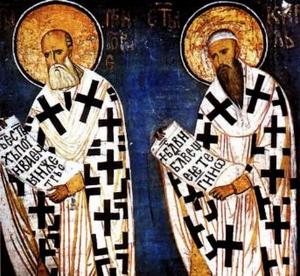 O Cyril Methodius, glorious teachers, with brilliance you taught
the Moravians to bless God in their own words, by translating the law of the
Lord from Greek into Slavonic. You taught His righteousness. Therefore, the
Slav peoples now give glory to God in joy.
O Cyril Methodius, glorious teachers, with brilliance you taught
the Moravians to bless God in their own words, by translating the law of the
Lord from Greek into Slavonic. You taught His righteousness. Therefore, the
Slav peoples now give glory to God in joy.The Cistercian monk, philosopher and theologian Isaac of Stella (1100-1169) was featured in the Office of Readings today: Charity is the reason why anything should be done or left undone.
Charity is the only good reason to do anything, but it also sometimes demands that we not do something we might think we want to do. There are a lot of fine distinctions one has to make in this area to live spiritually in common life and ministry. For example:
- We are called to support one another, but not to enable maladaptive behaviors, debilitating addictions, and sins. We must bear with the burdens of others, and be willing to wash feet, but we should not take responsibility for the feelings of others.
- We must seek ways to invite both individuals and institutions to benefit from our strengths, and invite them into the success that derives from them, but--again--we should be careful not to take interior or exterior responsibility for situations that the Holy Spirit has not, or not yet, seen fit to put in our care.
- Sometimes the greatest charity--and often the most painful--is not giving someone what he thinks he wants.
- We must be good to ourselves, practicing good self-care, but that doesn't mean taking it easy and just 'being nice' to ourselves. On the one hand, we must not be so hard on ourselves that our whole spiritual life becomes a rehearsal of faults and sins, for this is one of the devil's tricks in making us fail to notice God, and on the other we must also be careful not be overly forgiving of ourselves so as to effectively give up struggling with certain selfishnesses and sins.
- We must practice the sort of self-charity that nourishes our gifts and virtues, and is ruthless in the unwillingness to put up with sin.
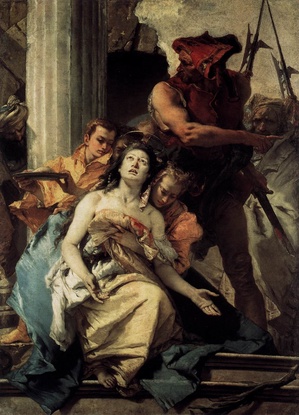 The Church has a ministry, a role, a work, in helping to restore a person to health and wholeness because the Church is the continuation of Jesus' ministry of healing in the world today.
The Church has a ministry, a role, a work, in helping to restore a person to health and wholeness because the Church is the continuation of Jesus' ministry of healing in the world today.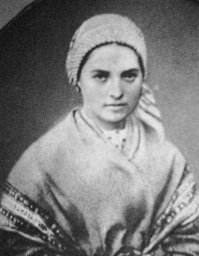 The yearly Communion and Liberation Mass was celebrated earlier this evening by our friend Bishop Peter A. Rosazza, auxiliary bishop emeritus of the Archdiocese of Hartford, at Saint Mary's Church, New Haven, CT. His homily focused on the young girl that had the vision of Our Lady of Lourdes, Saint Bernadette Soubirous.
The yearly Communion and Liberation Mass was celebrated earlier this evening by our friend Bishop Peter A. Rosazza, auxiliary bishop emeritus of the Archdiocese of Hartford, at Saint Mary's Church, New Haven, CT. His homily focused on the young girl that had the vision of Our Lady of Lourdes, Saint Bernadette Soubirous.Released earlier today, the Pope gave the Church his thinking and hopes for the living and the promotion of vocations. Very clear is the Pope's insistence on one's being familiar with the Scriptures, friendship with the Lord cultivated through personal and liturgical prayer. Also, one's own self-awareness factors into the discernment of one's vocation, whether to religious life, priesthood or to the lay state. May the Lord of the Harvest grant an increase.
The 48th World Day of Prayer for Vocations, to be celebrated on 15 May 2011, the Fourth Sunday of Easter, invites us to reflect on the theme: "Proposing Vocations in the Local Church". Seventy years ago, Venerable Pius XII established the Pontifical Work of Priestly Vocations. Similar bodies, led by priests and members of the lay faithful, were subsequently established by Bishops in many dioceses as a response to the call of the Good Shepherd who, "when he saw the crowds, had compassion on them, because they were like sheep without a shepherd", and went on to say: "The harvest is plentiful but the labourers are few. Pray therefore the Lord of the harvest to send out labourers into his harvest!" (Mt 9:36-38).
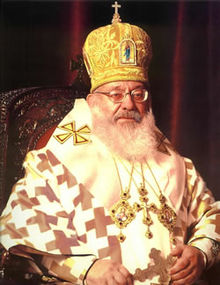
Our Church was not built after a name of a See or Apostle, but rather took its identity from the radiance of a man and a monastery: the Maronite Church, a Church of asceticism and adoration attached from the beginning to a solitary man, not a man of rank or a Church leader.The faith lived out by the hermit Maron became the inner strength of a people's history. As for the successive migrations from Syria (in the 5-10th centuries), the Maronites gave them one meaning, that is, giving up land, wealth and comfort in Syria moving toward a poor land where anxiety and austerity prevail, so they could preserve their faith and remain attached to their freedom ... This event is not a simple historical fact among others ... it is the very beginning of a new history, the history of the Maronites.
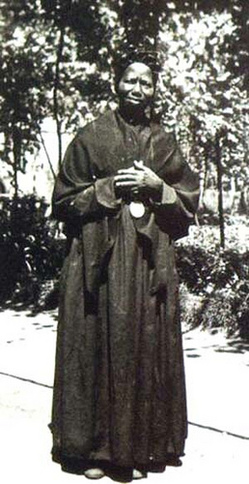
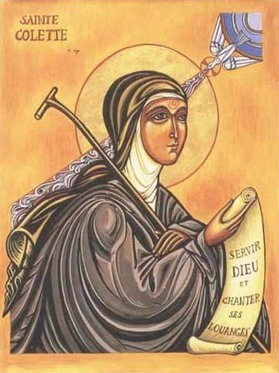 Saint Colette is the famous 15th century reformer of the Poor Clare nuns. You see her reform noted as the Colettine Poor Clares. She follows to a "T" the rigorous life set down by Saint Clare herself in hearing the words "If any want to become my followers, let them deny themselves and take up their cross and follow me." She did; so did others.
Saint Colette is the famous 15th century reformer of the Poor Clare nuns. You see her reform noted as the Colettine Poor Clares. She follows to a "T" the rigorous life set down by Saint Clare herself in hearing the words "If any want to become my followers, let them deny themselves and take up their cross and follow me." She did; so did others.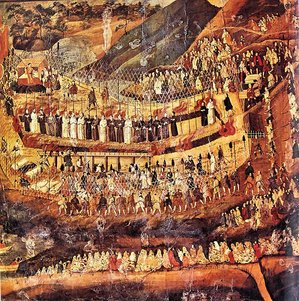 The Church observes the liturgical memorial of Saint Paul Miki and his companions, martyrs for believing in Jesus. The only thing a person of true faith in Christ can say is what the Apostle Paul said in his letter to the Galatians: "I live, no longer I, but Christ lives in me."
The Church observes the liturgical memorial of Saint Paul Miki and his companions, martyrs for believing in Jesus. The only thing a person of true faith in Christ can say is what the Apostle Paul said in his letter to the Galatians: "I live, no longer I, but Christ lives in me."
A beautiful for the feast
O Christ, the source of endless life,
We bring you thanks and praise today
That martyrs bold your name confessed
And, through their pain, held to your Way.
The gospel preached within Japan
Converted both adult and child,
And flourished there by your rich grace
Despite oppression fierce and wild.
When hatred for this infant church
Broke out in persecution's might,
Your martyrs knew you as their Lord
Who shined in darkness as their light.
O Father, Son, and Spirit blest,
To you all glory now is due.
As were the Martyrs of Japan,
May we to Christ be ever true!
J. Michael Thompson
Copyright © 2010, World Library Publications
LM; TALLIS' CANON, BRESLAU"
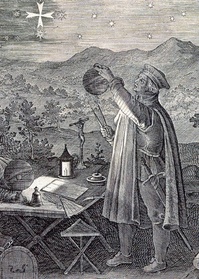
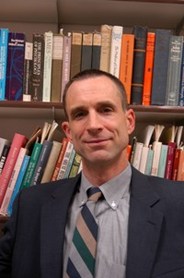 The Chairman of the Board of First Things, Robert Louis Wilken, announced that Russell R. Reno is the new editor of First Things.
The Chairman of the Board of First Things, Robert Louis Wilken, announced that Russell R. Reno is the new editor of First Things.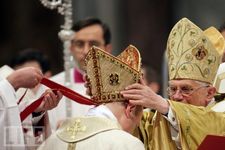
The Holy Father ordained 5 priests to the episcopacy today on the liturgical memorial of Saint Agatha at the Vatican Basilica. The priests are:
Father Savio Hon Tai-Fai, 61, a Salesian of Saint John Bosco, elected titular archbishop of Sila and nominated Secretary of the Congregation of the Evangelization of Peoples.
Father Marcello Bartolucci, 67, a priest of the Diocese of Assisi-Nocera Umbria-Gualdo Tadino, elected titular archbishop of Bevagna and nominated Secretary of the Congregation of the Causes of Saints.
Father Celso Morga Iruzubieta, 63, a priest of the Diocese of Calahorra y La Calzada-Logroño, elected titular archbishop of Alba Marittima and nominated Secretary of the Congregation of the Clergy.
Father Antonio Guido Filipazzi, 48, a priest of the Diocese of Ventimiglia-San Remo, elected titular archbishop of Sutri and nominated Apostolic Nuncio.
Father Edgar Peña Parra, 51, a priest
of the Archdiocese of Maracaibo, elected titular archbishop of Telepte and
nominated Apostolic Nuncio in Pakistan.
May the saints intercede for these men.
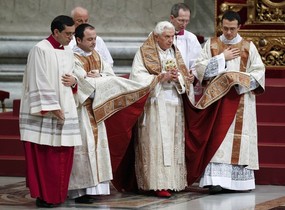 Word's been received that Pope Benedict's organ donor card is void. It's been so since his election to the papacy in 2005. Since the 1970's it is said that he's been an organ donor.
Word's been received that Pope Benedict's organ donor card is void. It's been so since his election to the papacy in 2005. Since the 1970's it is said that he's been an organ donor.The act of love, which is expressed with the gift of one's own vital organs, is a genuine testament of charity that knows how to look beyond death so that life always wins. The recipient should be aware of the value of this gesture that one receives, of a gift that goes beyond the therapeutic benefit. What they receive is a testament of love, and it should give rise to a response equally generous, and in this way grows the culture of gift and gratitude.
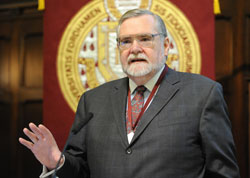 Terrence W. Tilley, Ph.D., chair of the Department of
Theology at Fordham University, was formally installed as the first occupant of
the Avery Cardinal Dulles, S.J., Chair of Catholic Theology. The benefactors of
the Dulles Chair are Vincent and Teresa Viola.
Terrence W. Tilley, Ph.D., chair of the Department of
Theology at Fordham University, was formally installed as the first occupant of
the Avery Cardinal Dulles, S.J., Chair of Catholic Theology. The benefactors of
the Dulles Chair are Vincent and Teresa Viola.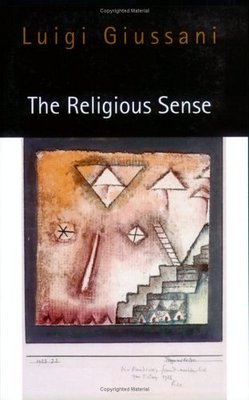 This coming year the Schools of Community throughout the world will be working on Monsignor Luigi Giussani's seminal text, The Religious Sense (in English in 1997).
This coming year the Schools of Community throughout the world will be working on Monsignor Luigi Giussani's seminal text, The Religious Sense (in English in 1997).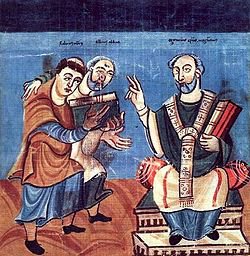 Saint Rabanus (c. 780-4 Feb. 856), a Benedictine monk, theologian, exegete, poet, abbot and archbishop of Mainz, called the "teacher of Germany." Rabanus studied under Alcuin who gave him the name of "Maurus." He authored De rerurm naturis (On the Nature of Things), De laudibus sanctae Crucis but he's most known for his composition of "Veni Creator Spiritus," the beautiful hymn we sing at Pentecost and any time we pray to the Holy Spirit.
Saint Rabanus (c. 780-4 Feb. 856), a Benedictine monk, theologian, exegete, poet, abbot and archbishop of Mainz, called the "teacher of Germany." Rabanus studied under Alcuin who gave him the name of "Maurus." He authored De rerurm naturis (On the Nature of Things), De laudibus sanctae Crucis but he's most known for his composition of "Veni Creator Spiritus," the beautiful hymn we sing at Pentecost and any time we pray to the Holy Spirit.
We will be gathering to pray the Holy Mass for those living with breast cancer in honor of Saint Agatha, the patron saint of those living with breast cancer.
Saint Agatha's feast day is February 5 but for pastoral reasons, the liturgical observance will be held on the day before and the after the feast.
No one is without a family member or a friend who has breast cancer. This is an opportunity to join together in prayer and friendship with those living with ongoing trial --you could say cross-- of breast cancer.
- On Friday, February 4, at the 5:30 pm Mass at Our Lady of Pompeii Church (355 Foxon Road, Route 80, East Haven, CT), Father John Lavorgna will administer the Sacrament of the Anointing of the Sick invoking the intercession of Saint Agatha.
Let your friends know of this special Mass and anointing service. All are invited and most welcome.

Besides being Saint Blase Day, today is also known as "Four Chaplains Day." The US Congress designated today to honor the 4 US Army chaplains who were serving on the USAT Dorchester during World War II.
Father John P. Washington (Roman Catholic priest), Rev. Clark V. Poling (Dutch reformed), Rev. George L. Fox (Methodist), and Rabbi Alexander D. Goode sacrificed their lives as their ship went down. 672 of 902 men died.
All of the chaplains held the rank of lieutenant.
The Episcopal Church has designated February 3 a liturgical memorial for these chaplains.
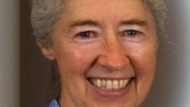 Last week Nancy Davis, 59, drug smugglers wanted her pickup truck and killed her for it in Mexico. What Nancy and her husband, Sam, did was to build churches and orphanages but they found themselves trying to out-run drug runners with assault rifles. Nancy and Sam Davis have been missionaries in Mexico for the last 38 years.
Last week Nancy Davis, 59, drug smugglers wanted her pickup truck and killed her for it in Mexico. What Nancy and her husband, Sam, did was to build churches and orphanages but they found themselves trying to out-run drug runners with assault rifles. Nancy and Sam Davis have been missionaries in Mexico for the last 38 years.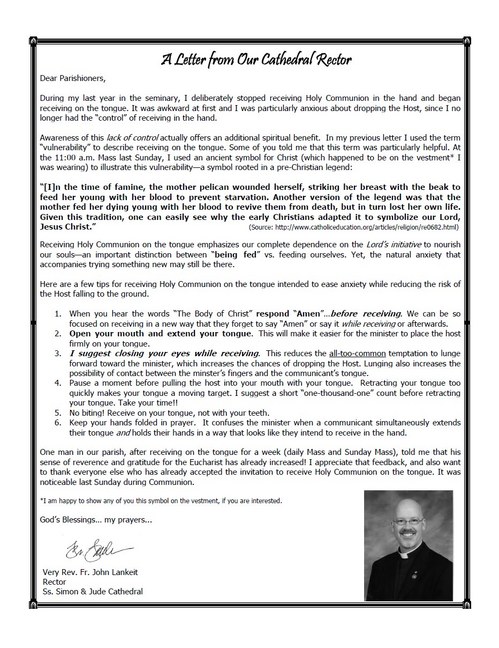
- lex orandi, lex credendi, lex vivendi (prayer, doctrine, life): all have to cohere
- the Incarnation is a fact: in faith we encounter this fact, this Person, experience the exceptionality and the wonder
- the contemporaneousness of Jesus Christ
- the witness of the Catholic faith is true and it is true for all people
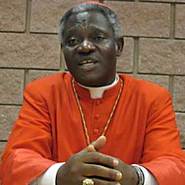
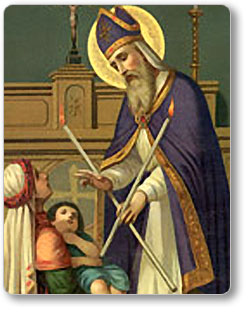
Lord, hear the prayers of Your martyr Blase. Give us the joy of Your peace in this life and help us to gain the happiness that will never end.
The Church has few exact details of the life of Saint Blase (also Blaise, Biago, Sveti Vlaho) but we have the experience of his popularity through the centuries in the churches of the East and West. What we know is that Blase was a physician, the Bishop of Sebaste, Armenia and martyr. The Roman Martyrology tells us that he was beheaded in 316.
More info on Saint Blase is found here and here.
The Blessing of Candles on the feast of St Blase can be found here.
The Blessing of Bread, Wine, Water and Fruit for the feast.

From the Golden Legend again:
And when this good widow, which by S. Blase had recovered her swine, heard thereof, she slew it, and the head and the feet with a little bread and a candle, she brought to S. Blase, and he thanked God and ate thereof, and he said to her that every year she should offer in his church a candle, and know thou that to thee and to all them that so shall do shall well happen to them, and so she did all her life, and she had much great prosperity.
Even after imprisonment, he refused to worship the prince's gods, and for punishment his flesh torn by wool combs. He was finally beheaded, martyred along with seven women and two children.
Today, due to the cure of the boy's throat when the boy was choking, Saint Blase is patron against diseases or any other trouble of the throat.
The priest will bless two candles in honor of Saint Blase.
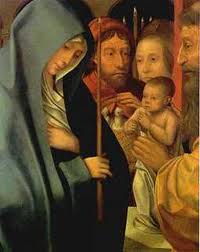
In today's feast we contemplate the Lord Jesus whom Mary and Joseph take to the Temple "to present him to the Lord" (Luke 2:22). Revealed in this evangelical scene is the mystery of the Son of the Virgin, the consecrated One of the Father, who came into the world to carry out his will faithfully (cf. Hebrews 10:5-7).
Simeon points to him as "light for revelation to the Gentiles" (Luke 2:32), and proclaims with prophetic word his supreme offer to God and his final victory (cf. Luke 2:32-35). It is the meeting of the two Testaments, the Old and the New. Jesus enters the ancient Temple, He who is the new Temple of God: He comes to visit his people, bringing to fulfillment obedience to the Law and inaugurating the end times of salvation.
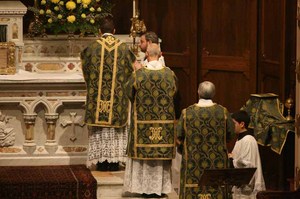 How does one form a deacon, priest and bishop to celebrate the ars celebrandi of the sacred Liturgy? Being side-by-side these sacred ministers I am often scandalized by the lack of composure and gravitas in the praying of the Mass and other liturgical rites. Several priests and bishops I know are such poor celebrants of the Mass that I would argue that Mass celebrated so poorly does in fact lead others away from the Church's worship. And let's not even speak of the many deacons who have no clue and poor presence in the sanctuary! Two cardinals I've seen celebrate the Mass in their cathedrals have the habit of running down the isle and up the stairs into the sanctuary with evident exterior indication of what is about to happen. Another needs a seat belt in the cathedra. Is it too much to ask for beautiful gesture, beautiful music, beautiful words, beautiful art and architecture in the sacred Liturgy? Beauty and prayer also warms interpersonal relations!
How does one form a deacon, priest and bishop to celebrate the ars celebrandi of the sacred Liturgy? Being side-by-side these sacred ministers I am often scandalized by the lack of composure and gravitas in the praying of the Mass and other liturgical rites. Several priests and bishops I know are such poor celebrants of the Mass that I would argue that Mass celebrated so poorly does in fact lead others away from the Church's worship. And let's not even speak of the many deacons who have no clue and poor presence in the sanctuary! Two cardinals I've seen celebrate the Mass in their cathedrals have the habit of running down the isle and up the stairs into the sanctuary with evident exterior indication of what is about to happen. Another needs a seat belt in the cathedra. Is it too much to ask for beautiful gesture, beautiful music, beautiful words, beautiful art and architecture in the sacred Liturgy? Beauty and prayer also warms interpersonal relations! 40 days ago we celebrated the fact of the Incarnation of the Eternal Word of God, Emmanuel, whom we call Jesus. Today's liturgical observance of Candelmas --the Encounter with the Lord-- recalls our great joy and we're told what our joy is about by Saint Leo the Great:
40 days ago we celebrated the fact of the Incarnation of the Eternal Word of God, Emmanuel, whom we call Jesus. Today's liturgical observance of Candelmas --the Encounter with the Lord-- recalls our great joy and we're told what our joy is about by Saint Leo the Great: 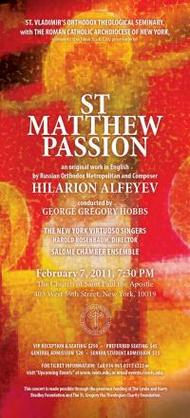
The St. Vladimir's Orthodox Theological Seminary (Yonkers, NY) will present a setting of the St. Matthew Passion.
The musical setting of Passion of Jesus Christ according to the Gospel of Saint Matthew is an exquisite interplay of soloists, choir, and orchestra. This concert will be the U.S. English-language premiere of the piece by Russian Orthodox Christian composer and churchman Metropolitan Hilarion Alfeyev.
Performers will include The Salomé Chamber Orchestra, famed soloists soprano Mary Mackenzie, mezzo-soprano Ana Mihanovic, tenor Blake Friedman, and bass Aaron Theno, and the New York Virtuoso Singers prepared by Harold Rosenbaum.
The concert will take place at 7:30 pm in the Church of the Saint Paul the Apostle (at the corner of Columbus Avenue & West 60th Street, NY 10019).
Please click HERE for more information and to purchase tickets.
Metropolitan Hilarion Alfeyev, 46, is the Russian born Oxford and Paris educated theologian and musician. He's wonderfully talented in many areas. Last May it was a pleasure of mine to see him and hear his work in Rome at a concert he organized for Pope Benedict XVI.
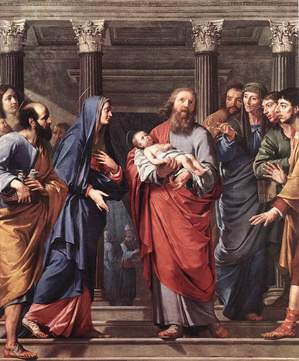 In honor of the divine mystery that we celebrate
today, let us all hasten to meet Christ. Everyone should be eager to join the procession
and to carry a light. Our lighted candle are a sign of the divine splendor of
the One who comes to expel the dark shadows of evil and to make the whole
universe radiant with the brilliance of His eternal light. Our candles show us
how bright our souls should be when we go to meet Christ.
In honor of the divine mystery that we celebrate
today, let us all hasten to meet Christ. Everyone should be eager to join the procession
and to carry a light. Our lighted candle are a sign of the divine splendor of
the One who comes to expel the dark shadows of evil and to make the whole
universe radiant with the brilliance of His eternal light. Our candles show us
how bright our souls should be when we go to meet Christ.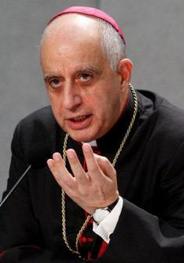 In some comments made of a book on the papacy of Benedict XVI, Archbishop Rino Fisichella said that at the beginning of every pontificate the new pope and the Church face certain challenges that are normal. As Fisichella, the head of the Pontifical Council for Promoting New Evangelization reminded his audience, we're only 6 years into Benedict's ministry as the head of the Catholic Church. None of the things that blotted the pope's copybook (that is, have caused the Pope to expend political capitol) are new and that extraordinary; change is always needed in the Church moving to a new administration. All of the recent popes have had to deal the growing pains of transitioning from pontificate to another. In Fisichella's interpretation, and I concur, the central issue of Benedict's work is one of formation, a new education in the faith of all the faithful, including the higher and lower clergy. However, I do think that some of the people that work directly or indirectly at the Holy See have not been as helpful as they possibly could be so as not to have Benedict kicked by the secular media at every "major" event.
In some comments made of a book on the papacy of Benedict XVI, Archbishop Rino Fisichella said that at the beginning of every pontificate the new pope and the Church face certain challenges that are normal. As Fisichella, the head of the Pontifical Council for Promoting New Evangelization reminded his audience, we're only 6 years into Benedict's ministry as the head of the Catholic Church. None of the things that blotted the pope's copybook (that is, have caused the Pope to expend political capitol) are new and that extraordinary; change is always needed in the Church moving to a new administration. All of the recent popes have had to deal the growing pains of transitioning from pontificate to another. In Fisichella's interpretation, and I concur, the central issue of Benedict's work is one of formation, a new education in the faith of all the faithful, including the higher and lower clergy. However, I do think that some of the people that work directly or indirectly at the Holy See have not been as helpful as they possibly could be so as not to have Benedict kicked by the secular media at every "major" event. "The Snow-Storm" comes to mind today. There's a certain end-times (should we say a 19th century apocalypticism?) quality to Ralph Waldo Emerson's poem that life and death are confronted, forward motion is reduced-if-not-halted the boundaries are indistinct. Looking out my window I see the barrenness of the landscape with only the evergreens providing color save for the woodpecker, the bluejay and the cardinals collecting their food at the feeder. The property lines aren't present and movement is difficult either by foot, car, or train, and forget the airplane. The vivid white of the snow and ice is blinding.
"The Snow-Storm" comes to mind today. There's a certain end-times (should we say a 19th century apocalypticism?) quality to Ralph Waldo Emerson's poem that life and death are confronted, forward motion is reduced-if-not-halted the boundaries are indistinct. Looking out my window I see the barrenness of the landscape with only the evergreens providing color save for the woodpecker, the bluejay and the cardinals collecting their food at the feeder. The property lines aren't present and movement is difficult either by foot, car, or train, and forget the airplane. The vivid white of the snow and ice is blinding. 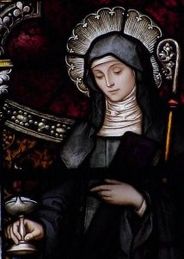
O holy Brigid, you became sublime through your humility, and flew on the wings of your longing for God. When you arrived in the eternal City and appeared before your Divine Spouse, wearing the crown of virginity, you kept your promise to remember those who have recourse to you. You shower grace upon the world, and multiply miracles. Intercede with Christ our God that He may save our souls. (Troparian, tone 1)
Lord, you
inspired in Saint Brigid such whole-hearted dedication to your work that she is
known as Mary of the Gael; through her intercession bless our country; may we
follow the example of her life and be united with her and the Virgin Mary in
your presence.
More on Saint Brigid here.
Image via Wikipedia
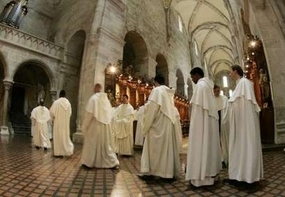 February 2, Candlemas, is since 1997, World Day of Consecrated Life was instituted by Pope John Paul II. Candlemas is a feast of encounter. In years past the Pope celebrated the Mass but this year he's celebrating Vespers. Four years ago I was there with some friends and it was a widely beautiful experience because we were united in prayer and in communion with Pope Benedict with all the various charisms --religious orders, congregations, religious and secular institutes-- called by the Lord into existence for the entire Church, not just for a select few. While a man professes the vows of a Capuchin or Benedictine his vocation is for his own salvation and for the witness of the Resurrection. It is not a case of either-or. This is an important point: a day of prayer like the one for consecrated life is not exclusively for those in vows, but for all of the faithful who are called to live a life of holiness, a life of conversion rooted in Baptism. Pope Benedict notes three aspects of the day of prayer for consecrated life: to thank and praise God for the gift of the consecrated life, to promote and appreciation with all the faithful of this vocation and to invite all the vowed people to recognize what the Lord has done in them through the Gospel.
February 2, Candlemas, is since 1997, World Day of Consecrated Life was instituted by Pope John Paul II. Candlemas is a feast of encounter. In years past the Pope celebrated the Mass but this year he's celebrating Vespers. Four years ago I was there with some friends and it was a widely beautiful experience because we were united in prayer and in communion with Pope Benedict with all the various charisms --religious orders, congregations, religious and secular institutes-- called by the Lord into existence for the entire Church, not just for a select few. While a man professes the vows of a Capuchin or Benedictine his vocation is for his own salvation and for the witness of the Resurrection. It is not a case of either-or. This is an important point: a day of prayer like the one for consecrated life is not exclusively for those in vows, but for all of the faithful who are called to live a life of holiness, a life of conversion rooted in Baptism. Pope Benedict notes three aspects of the day of prayer for consecrated life: to thank and praise God for the gift of the consecrated life, to promote and appreciation with all the faithful of this vocation and to invite all the vowed people to recognize what the Lord has done in them through the Gospel.
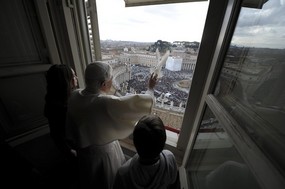 The general intention
The general intention